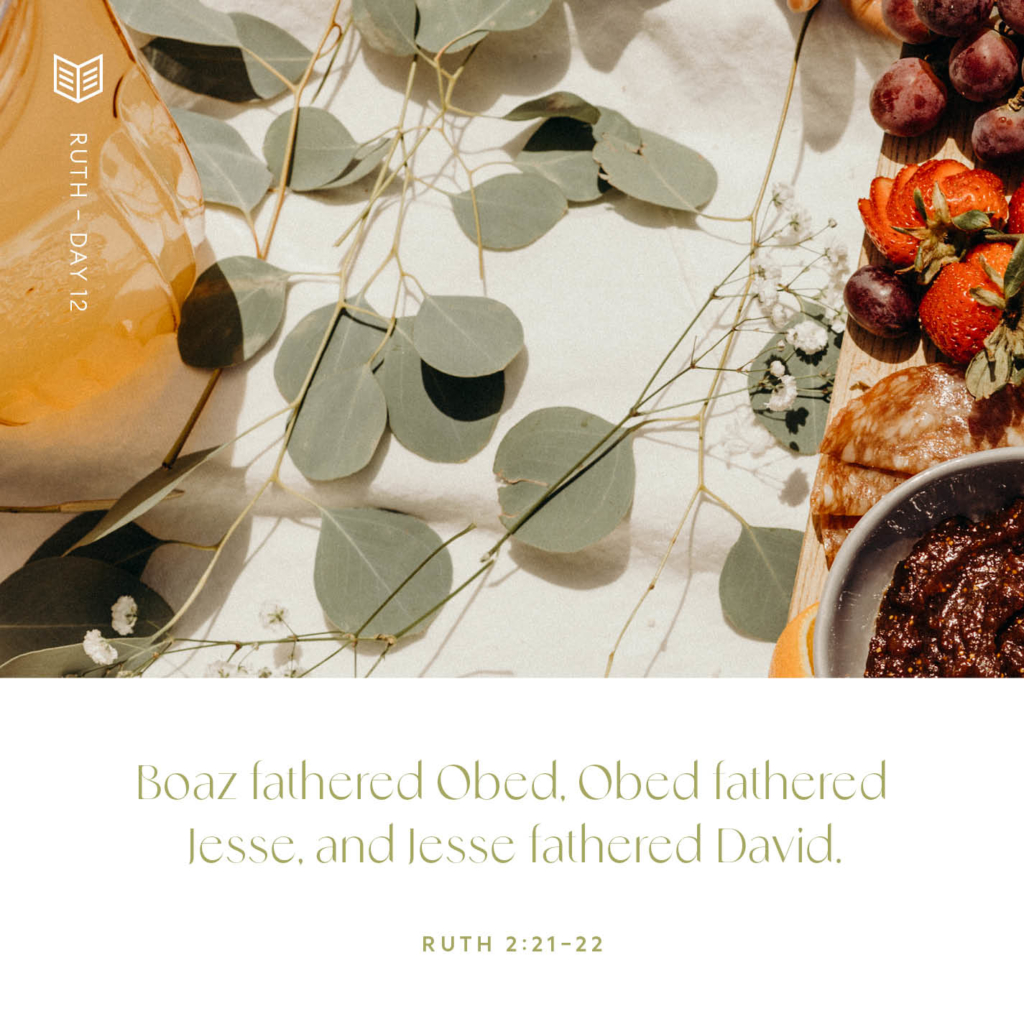Ruth’s Legacy
Open Your Bible
Ruth 4:18-22, Isaiah 11:1-10, Matthew 1:2-16, Ephesians 2:19-22
BY Jasmine Holmes
One Sunday, a friend of mine stepped into the pulpit to read a section of Scripture. Our church was making its way through the Pentateuch, and this poor soul had been assigned a genealogy chapter. He was a seminarian, a fledgling pastor, and an optimist, but even he stumbled over a few unfamiliar names as he read about the fathers of, the sons of, and the sons of the sons of long-dead patriarchs.
I come from a straight-laced church background, but when he got to the period at the end of the last sentence, someone let out a whoop, and we applauded because he had made it!
I thought about him often when I read through the Bible last year. My tendency is to skim over the genealogies with a dismissive, “We get it.” But if my friend could stand up in front of an entire congregation and read every name, then surely, I could give those names a moment in my quiet time.
When we make it to Ruth 4:18–22, it can be easy to skim over the names we find there: Perez, Hezron, Ram, Amminadab, Nahshon, Salmon, Boaz, Obed, Jesse, and David. Especially if we grew up in the Western church, when we see names that feel odd in our mouths or tinny in our ears, we give that dismissive nod to the foreignness of it all: they’re just names.
But they’re so much more than names. In this small grouping of ten names, we see the promises of God fulfilled and the promises of God foretold.
The promises of God are fulfilled in the very survival of this family tree. Way back in Genesis 12, God promised a man named Abraham that his barren wife would bear a son and that he would be the father of a nation (Genesis 12:1–3). God kept this promise through ten more years of infertility. Within two generations, He kept the promise through brotherly betrayal and famine. He kept the promise through harsh slavery in Egypt four hundred years later. And forty years after that, He kept the promise while Abraham’s offspring wandered the desert.
He would keep that promise through judges and kings; through captivity; through exile. He would keep that promise through generation after generation until the promise bore its fruit in the person and work of Jesus Christ.
Ruth 4 is just one moment where we see God keeping His word to Abraham: the nation would continue to have fathers and sons.
And in that fatherhood and sonship, we see a promise not just kept, but also, foretold. Because although Ruth’s name is not present in this chapter, we will find her in Matthew’s genealogy in the New Testament as the mother of Obed. This woman—whose name would have been foreign to Israel’s tongue—was grafted into the genealogy of the Messiah.
Much the same way that we who are not of Abraham’s lineage have been grafted into the family of faith.
It would be easy to skim those names in the genealogies with little care. But imagine them as just a foretaste of what it’s like to read the names that God has written in the Book of life—the names of the people grafted into His eternal family.
Imagine you will find your name there.
And then read carefully—because each and every precious soul therein is part of the plan God has been mighty to see to the end.

41 thoughts on "Ruth’s Legacy"
-
The faithfulness of our Redeemer, shown through a beautiful story of love, obedience, and faithfulness. Thank you Jesus for being our Redeemer!


Post Comments (41)